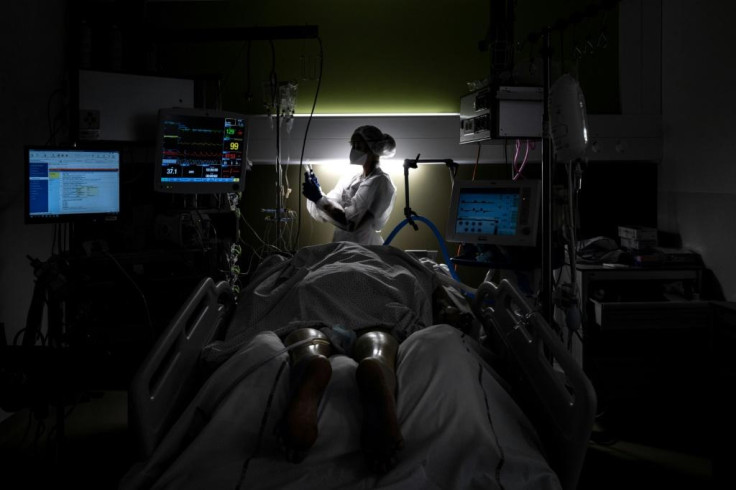New ONS Study Launched to Collect 'Robust' Winter COVID Data
The UK Health Security Agency has launched a new ONS study to understand the changes in COVID-19 in the winter months and lower the burden of the NHS.

As the winter nears, the fear of new strains of COVID-19 returns and to counter this, the UK government has launched a new study that aims to gather information on the virus.
Earlier this week, the UK Health Security Agency (UKHSA) declared they are launching a study to collect vital data on COVID-19 this winter. The study will be conducted by the Office for National Statistics (ONS).
The Rishi Sunak government is calling the new study which would run from November 2023 to March 2024 "the Winter COVID-19 Infection Study (WCIS)".
As part of the Winter COVID-19 Infection Study, the government will be collecting data from 200,000 COVID-infected people in the UK.
Earlier during the pandemic, the ONS in partnership with Oxford University did a Coronavirus Infection Survey (CIS) as commissioned by UKHSA. The CIS set the golden standard of coronavirus surveillance in the world as it conducted over 11.5 million swab tests and 3 million blood tests in a period of three years from April 2020 to March 2023.
While the WCIS is a new study which is markedly different from the infection survey it would be crucial to know the COVID situation in a wider community. As part of the winter study 32000 lateral flow tests will be done every week, said the health security agency.
The samples collected in the winter study will help in categorising the UK population based on key characteristics and this will provide critical insights into the circulating level of the COVID-19 virus within the UK.
The health security agency underlined the necessity of the winter study as it would help identify vulnerable people in the UK population. Although COVID-19 vaccinations have made us survive the pandemic, it has made certain people vulnerable to severe illness which could put the NHS under pressure during winter, said UKHSA
The health security agency has asked all eligible adults to get vaccinated against flu and COVID-19 ahead of the winter months. People are advised to book for vaccination through the NHS website or the NHS app or call 119. This is necessary to protect the UK population against severe illness and lower the burden on the NHS as hospitalisation rates decrease.
Although existing UKHSA surveillance systems have all the information regarding hospital and intensive care unit (ICU) admission rates, the winter study will help in detecting changes in the infection hospitalisation rate (IHR). This is essential to accurately know the infection levels in the UK.
Accurate IHR calculations will help in estimating the increased demands of health services in the wake of changes in the virus and its spreading. This could also enable the UKHSA to screen for new variants.
New ONS study to identify emerging COVID risk factors
Speaking about the matter, the UKHSA Surveillance Department Director General Professor Steven Riley said that they are hoping to keep policymakers and the general public updated about the COVID situation through this study like they did during the COVID-19 pandemic.
This is in line with the newly launched pathogen surveillance network by WHO.
Professor Riley underlined the UKHSA's role in leading international COVID-19 surveillance. He termed WCIS "the study of positivity" through which we can detect changes in the coronavirus behaviour.
According to Professor Riley, lateral flow devices (LFDs) supplied by the UKHSA would be used to screen for the virus in this study. Earlier in September, the UKHSA released reports on the effectiveness of LFDs in detecting the BA.2.86 strain of COVID-19, Professor Riley added.
The Deputy National Statistician at ONS Emma Rourke said they are delighted to partner with UKHSA and are committed to building on the high standard set by the CIS.
Rourke stressed the need for "robust data" to understand the infectious capacity of the virus in the winter months. Through the new study the ONS will analyse the risk factors and the symptoms of the disease along with the impact of respiratory infections like long COVID, Rourke added.
The health security agency has plans to convert the new ONS study into a programme to analyse different respiratory viruses if it works out well.
© Copyright IBTimes 2025. All rights reserved.






















